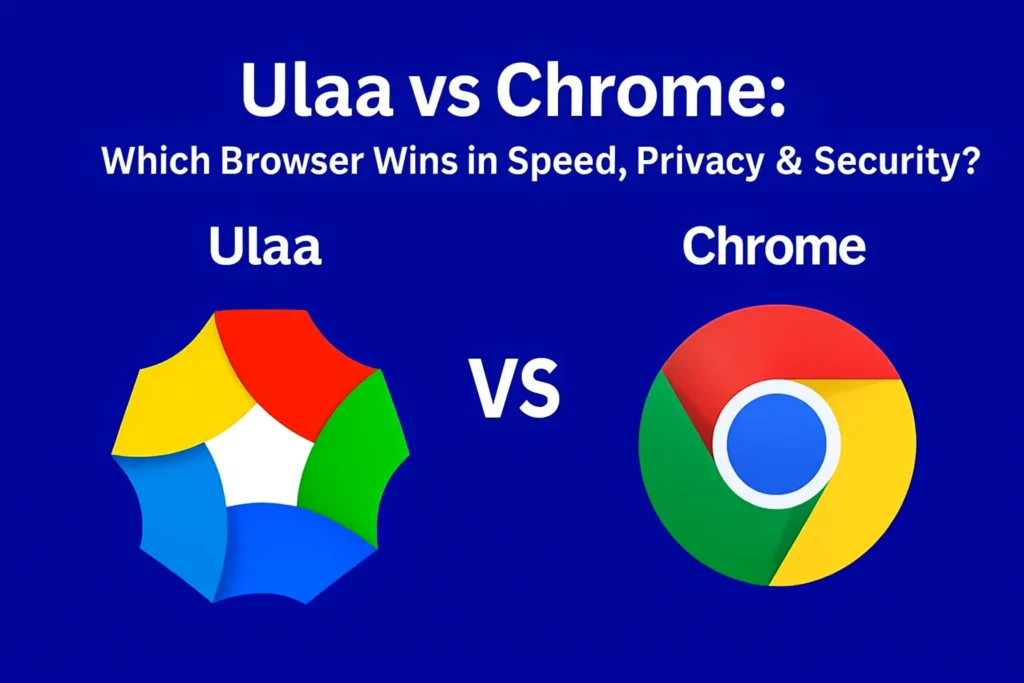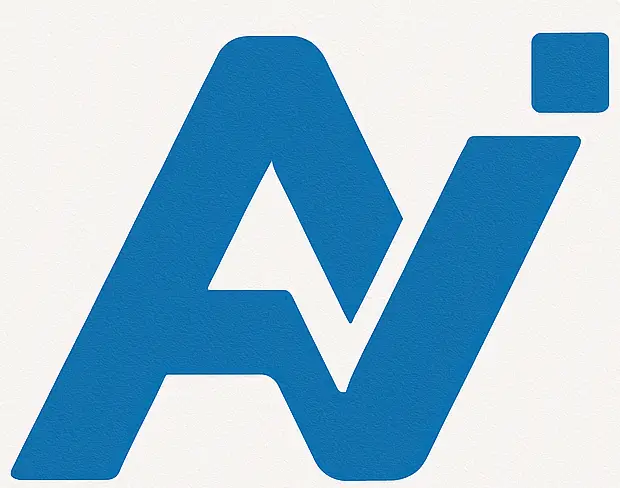Ulaa vs Chrome (2025): Which Browser Wins in Speed, Privacy & Security?

TL;DR
- Ulaa = Privacy-first, blocks ads & trackers by default, lightweight and better for battery life.
- Chrome = Speed & ecosystem, fastest on complex web apps, deeply integrated with Google services.
- Extensions: Both support Chrome Web Store, but Chrome has the largest native library.
- System usage: Ulaa is lighter on RAM; Chrome has improved, but is still heavier with many tabs.
- Verdict: Choose Ulaa for privacy & efficiency, choose Chrome for power & integration.
Introduction
Your web browser is more than just a tool; it’s your gateway to the internet. From reading emails and shopping online to attending meetings and streaming, the browser you use directly shapes your speed, privacy, and security experience.
For years, Google Chrome has been the world’s most popular browser. But now, Ulaa by Zoho has emerged as a privacy-focused alternative, offering users more control and challenging Chrome’s dominance.
So, the big question is: Ulaa vs Chrome, which browser is better in 2025? At Arra Vision, we’ve created a detailed comparison that covers speed, privacy, security, extensions, resource usage, and user experience to help you choose the browser that truly fits your needs.
Quick Snapshot: Ulaa vs Chrome Comparison Table
| Feature | Ulaa | Chrome |
| Speed | Fast with ad & tracker blocking by default | Very fast, optimized, but heavier on RAM |
| Privacy | Blocks trackers, cookies, ads; minimal data collection | Offers controls but is tied to Google’s ad ecosystem |
| Extensions | Supports Chrome Web Store extensions | Largest extension library |
| User Interface | Clean, distraction-free, multiple modes (Work, Kids, Developer) | Familiar, polished, deeply integrated with Google services |
| System Usage | Lightweight, efficient on older laptops | Improved in 2025, but still resource-heavy |
| Best For | Privacy-focused users & enterprises | Google ecosystem power users |
What is Ulaa Browser?
Ulaa is a modern Chromium-based web browser developed by Zoho, built to give users a safer and faster browsing experience. Unlike many popular browsers, Ulaa focuses on privacy, security, and efficiency rather than data collection.
Key Features of Ulaa Browser
- Ad & Tracker Blocking by Default – Ulaa automatically blocks ads and online trackers, helping websites load faster while keeping your browsing private.
- Multiple Browsing Modes – Switch between Work, Personal, Kids, Developer, or Productivity modes, depending on your use case.
- Privacy-First Design – Minimal data collection, strong anti-tracking features, and privacy dashboards ensure complete control over your information.
- Chrome Extension Support – Ulaa supports the Chrome Web Store, allowing you to install your favorite extensions like ad blockers, productivity tools, or SEO plugins.
Why Choose Ulaa?
In short, Ulaa is designed for users who:
- Value online privacy
- Want fewer ads and distractions
- Need a lightweight browser that works smoothly across devices
With its privacy-first approach and Chrome compatibility, Ulaa is a strong alternative to mainstream browsers like Chrome and Edge.
What is Google Chrome?
Google Chrome is the world’s most widely used web browser, trusted by billions of users across desktop, mobile, and tablet devices. Like Ulaa, Chrome is also built on the Chromium engine, but its priorities are different—speed, compatibility, and deep integration with Google’s ecosystem.
Key Strengths of Google Chrome
- Lightning-Fast Performance – Chrome is known for its high speed and smooth performance across websites and applications.
- Largest Extension Ecosystem – With over 100,000+ extensions, Chrome offers the most extensive collection of add-ons for productivity, security, entertainment, and more.
- Seamless Google Integration – Perfectly connected with Google services like Drive, Docs, Gmail, Calendar, and other productivity tools.
- Strong Security Updates – Backed by Google’s large security team, Chrome delivers frequent updates to keep users protected from threats.
Speed & Performance: Ulaa vs Chrome
Ulaa Browser
- Ad & tracker blocking by default → pages load faster on ad-heavy websites.
- Lightweight on system resources → ideal for older laptops and low-RAM devices.
- Helps improve battery performance by reducing background load.
Google Chrome
- One of the fastest browsers → highly optimized for complex web apps like Google Docs and Figma.
- Excellent at handling multiple tabs and heavy applications smoothly.
- Known for being RAM-heavy and can drain battery life with too many tabs open.
Verdict
- Choose Ulaa if you want lightweight browsing and faster performance on older or low-spec systems.
- Choose Chrome if you need powerful performance on advanced apps and multitasking environments
Privacy & Security: Chrome vs Ulaa
Ulaa Browser
- Privacy-first design → blocks ads, trackers, and third-party cookies by default.
- No personal data collection for ads or profiling.
- Offers a cleaner, safer browsing experience with minimal tracking.
Google Chrome
- Provides privacy settings and an Incognito Mode for private sessions.
- Introduces Google’s Privacy Sandbox initiative to reduce third-party tracking.
- However, because Google’s revenue depends on ads, Chrome still collects some user data by default.
Verdict
- Choose Ulaa if your top priority is online privacy and minimal data tracking.
- Choose Chrome if you want the convenience of Google’s ecosystem, even with some trade-offs in privacy.
Extensions & Ecosystem: Ulaa vs Chrome
Ulaa Browser
- Supports Chrome Web Store extensions → install popular tools like Grammarly, AdBlock, SEO plugins, and productivity apps.
- Ensures smooth compatibility with the most commonly used extensions.
- Great choice for users who want privacy-first browsing without losing extension support.
Google Chrome
- Largest extension library in the world with 100,000+ extensions.
- Perfect for power users, developers, and businesses that rely on advanced tools.
- Deep ecosystem integration with Google services makes extensions more powerful.
Verdict
- Chrome is slightly ahead thanks to its massive library and native integration.
- Ulaa is still an excellent choice, as it supports almost all extensions you already use, ensuring no major compromises
User Experience & Design: Ulaa vs Chrome
Ulaa Browser
- Multiple browsing modes – Work Mode, Kids Mode, Developer Mode, and more, tailored to different needs.
- Privacy dashboard – clearly shows how many ads and trackers are blocked, giving users more transparency and control.
- Focuses on a clean, distraction-free design for smoother browsing.
Google Chrome
- Familiar and sleek interface – easy to use for beginners and advanced users alike.
- Deep integration with Google services – seamless experience with Gmail, Drive, Docs, and Calendar.
- Consistent design across devices makes it highly user-friendly.
Verdict
- Choose Ulaa if you prefer a minimal, privacy-focused design with extra browsing modes.
- Choose Chrome if you want a familiar interface and smooth Google ecosystem integration.
Battery & Resource Usage: Chrome vs Ulaa
Google Chrome
- High memory usage – Chrome is often called a RAM hog, especially when running many tabs.
- Improvements in 2025 – Google has optimized Chrome’s memory management, but it still consumes more system resources than most browsers.
- It can drain battery life faster, making it less ideal for laptops and older devices.
Ulaa Browser
- Lightweight and optimized – built to run smoothly even on low-spec systems.
- Ad & tracker blocking reduces unnecessary background activity, saving processing power.
- Helps deliver better battery life, especially on laptops.
Verdict
- Ulaa is the better choice for laptops, low-RAM devices, and users who need longer battery life.
- Chrome performs well on powerful systems, but resource usage is still higher compared to Ulaa.
Security Features: Ulaa vs Chrome
Shared Foundation
- Both Ulaa and Chrome are built on the Chromium engine, which provides a strong baseline security framework.
- Users benefit from features like sandboxing, regular patches, and stable performance across platforms.
Google Chrome
- Backed by Google’s massive security team, ensuring frequent updates and patches against new threats.
- Advanced features like Safe Browsing, site isolation, and phishing protection.
- Scale advantage – with billions of users, vulnerabilities are quickly detected and fixed.
Ulaa Browser
- Focuses on blocking malicious ads, trackers, and third-party cookies by default.
- Offers privacy-first security defaults, reducing attack surfaces from ads and tracking networks.
- Multiple browsing modes add an extra layer of session-based control for safer usage.
Verdict
- Chrome excels in enterprise-level security and frequent updates due to Google’s scale.
- Ulaa is highly secure for privacy-conscious users, with built-in protections that limit tracking and malicious ad risks.
Which Browser Should You Use in 2025?
Choosing between Ulaa and Chrome depends on your needs, priorities, and browsing style. Here’s a quick guide to help you decide:
Choose Ulaa if:
- You want privacy-first browsing with ads and trackers blocked by default.
- You use an older laptop or low-RAM device and need better performance.
- You like having multiple browsing modes (Work, Personal, Kids, Developer) for flexibility and control.
Choose Google Chrome if:
- You rely heavily on Google services like Gmail, Drive, Docs, or Calendar.
- You are a developer or power user who needs advanced tools and maximum compatibility.
- You prefer a familiar interface with the largest extension ecosystem available.
Final Word
- Ulaa is best for users who value privacy, lightweight performance, and transparency.
- Chrome is best for users who want speed, Google ecosystem integration, and powerful extension support.
The smart choice? Try both browsers for a week and see which one fits your daily workflow and lifestyle better.
Conclusion
In the Ulaa vs Chrome debate, both browsers offer unique advantages. Ulaa stands out with privacy-first features, lighter system use, and distraction-free browsing, making it a great option for users who value security and smooth performance.
Chrome remains the leader in speed, Google ecosystem integration, and its powerful extension library. If privacy and efficiency matter most, choose Ulaa. If you rely on Google services and advanced tools, stick with Chrome. The best way forward? Try both and see which fits your lifestyle better. At Arra Vision, we recommend testing each browser so you can make the choice that truly supports your needs.
FAQs
1. What is the main difference between Ulaa and Chrome?
Ulaa is a privacy-first browser with built-in ad and tracker blocking, while Chrome is focused on speed, ecosystem integration, and extensions.
2. Is Ulaa safer than Google Chrome?
Yes. Ulaa blocks ads, trackers, and cookies by default, offering stronger privacy. Chrome is secure, too, but collects some user data for Google’s ad ecosystem.
3. Does Ulaa support Chrome extensions?
Yes. Ulaa supports the Chrome Web Store, so you can install popular extensions like Grammarly, AdBlock, and SEO tools.
4. Which browser is better for speed — Ulaa or Chrome?
- Ulaa feels faster on ad-heavy websites because of built-in blocking.
- Chrome is more optimized for complex apps like Google Docs or Figma.
5. Which browser uses less RAM, Ulaa or Chrome?
Ulaa is generally lighter on system resources, making it better for laptops and older devices. Chrome has improved memory usage in 2025 but still uses more RAM overall.
6. Can Ulaa replace Chrome completely?
Yes, for most users. Ulaa supports Chrome extensions and provides strong privacy features. However, if you rely heavily on Google services and advanced developer tools, Chrome may still be the better option.
7. Which browser is better for privacy in 2025?
Ulaa is better for privacy because it blocks trackers and collects minimal data. Chrome offers Incognito and Privacy Sandbox but still connects with Google’s ad network.
8. Is Chrome still the fastest browser in 2025?
Chrome remains one of the fastest browsers for web apps and multitasking. But Ulaa can load everyday websites quicker by cutting out ads and tracking scripts.
